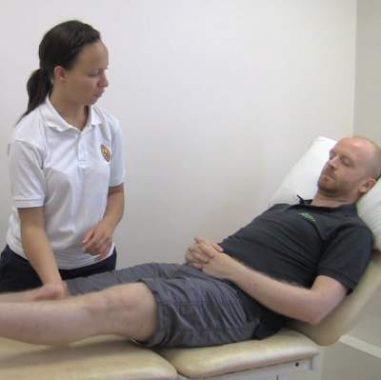A health board in County Antrim has removed a part-time physiotherapy service from a group of rural surgeries, leaving vulnerable and elderly patients having to travel 18 miles using a limited bus service to the nearest services.
The Glens of Antrim Medical Centre practice has appealed the decision made by the Northern Health and Social Care Trust, warning it goes against the Government’s aims to move care closer to home.
A partner at the practice has advised patients they should use private services if they can afford to, due to lengthy waits for many secondary care services.
The trust said they had made the decision to ‘focus capacity’ in outpatient centres as a way to deal with long waiting lists and ensure urgent referrals could be seen quickly.
The move has also forced the partners at the 6,500-patient practice to put on hold its plans to build a new health centre at its branch practice which would have had dedicated rooms for physiotherapy, podiatry, and other community services.
Dr John McSparran said at least five practices neighbouring practices would be hit by the decision and he does not hold any hope of officials changing their mind.
‘After they removed physiotherapy from our primary centre, how can we persist with the plans for the other centre if we can’t be sure the health board will provide what they say they will?,’ he said.
Dr McSparran and partners had proposed building the new health centre after taking on 1,400 new patients from a single-handed GP who retired.
‘We are extremely reluctant to develop another building when they are removing services.
‘We have a 90-year old patient who has waited four years for a hip replacement,’ he said. ‘If he ever does get the surgery are they saying he should get on the bus to go to a neighbouring town 18-20 miles away? It is the elderly and vulnerable patients we are worried about.’
Waiting lists for secondary care in Northern Ireland are so bad that Dr McSparran advises patients who can afford it to seek treatment privately.
He said: ‘Waiting lists are chronic. Patients are waiting a year, 18 months or more. Where they can afford it, I have no difficulty in saying go ahead and get your surgery privately. I have patients who have travelled to Dublin to pay for an operation.’
At the same time, hospitals are pushing workload back on to GPs, telling patients who have been waiting years to go back and get re-referred.
‘Waiting lists are chronic and we’re being asked to look after patients who should be on an acute geriatric ward,’ said Dr McSparran.
He added that several reports had concluded that the NHS should be shifting care closer to home and providing more services in the community but ‘politicians lack the fortitude to implement anything’.
A spokesperson for the Northern Trust said: ‘Changes were required to the provision of outpatient musculoskeletal (MSK) physiotherapy because there was a very extensive waiting time of greater than a year in some localities.
‘The routine wait has come down to less than 25 weeks and is continuing to improve towards meeting the 13-week waiting time standard, which should be achieved by the end of June 2019.’
They added that the impact on rural patients had been considered and there is a domiciliary physio service in place where needed.
The Department of Health is rolling out physiotherapists as part of GP multidisciplinary teams but the programme has not yet reached the Northern Trust.
BMA Northern Ireland GP Committee chair Dr Alan Stout said the physiotherapist roll-out is a priority and has begun in two areas.
He said: ‘These are new projects and new funding, but there is absolutely nothing to stop a practice and a trust progressing similar plans outside of this project with the intention of strengthening local primary care and reducing dependence on secondary care.
‘It is disappointing to hear that a service that is clearly valuable is withdrawn in this manner and I would have expected it instead to have been strengthened and expanded.’
In England, the new five-year GP contract will provide practices with 70% of the funding required to employ physiotherapists, as part of a move to bring 22,000 additional practice staff into the workforce.
Pulse October survey
Take our July 2025 survey to potentially win £1.000 worth of tokens













